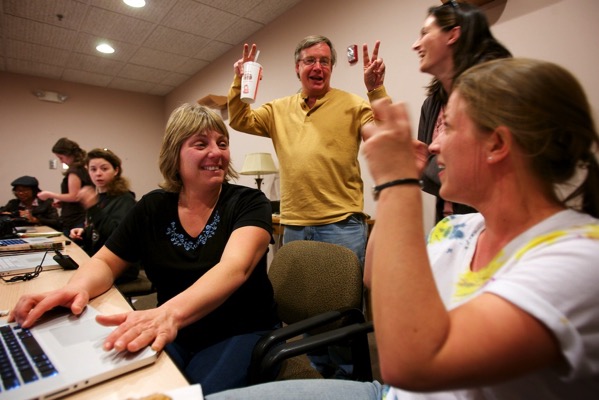Finding Your Tribe

One of the things I love about our program here at the University of Georgia’s Henry W. Grady College of Journalism and Mass Communication is the sense of community that each cohort creates. And it is something they create – I can’t make them like each other, they just do.
It’s something that I felt at various points in my career, as well. Working in Virginia in the early 1990s, I met Scott Bryant and Adam Traum and we’ve remained friends ever since. As a stringer for the Associated Press, I fell in with the likes of Susan Walsh and C.J. Gunther, people who guided me, coached me and occasionally cajoled me into being a better journalist. As a teacher now, I still have that community, both here in the building and scattered across the country, from Massachusetts to Wisconsin, Michigan to Florida (via West Virginia).
Having peers you can relate to, who can listen and offer ideas, or even just commiserate is critical. The emotional toll of the work visual journalists do is enormous, you need to find support.
It’s also one of the things that is disappearing from the realm of visual journalism. No longer do we stand in dark rooms, under the glow of a safelight, and grumble about deadlines. No longer do we pull laser prints off a stack and sort through them, searching for our own and wondering how a colleague did that.
Online communities are not the same to me, they don’t give us that physical, tactile and human sense of community. At least, they don’t for me – I need to see my teaching friends, to see their smile as they tell me I’m an idiot.
Grant Scott has a post up lamenting the same issues, about how it’s a hard time to make it and that you need to find your tribe to support you. I love ideas like photo nights and weekend gatherings. A friend and I are tossing around the idea of hopping in a car and driving to nowhere for a week of semi-random storytelling.
How will you find your tribe?